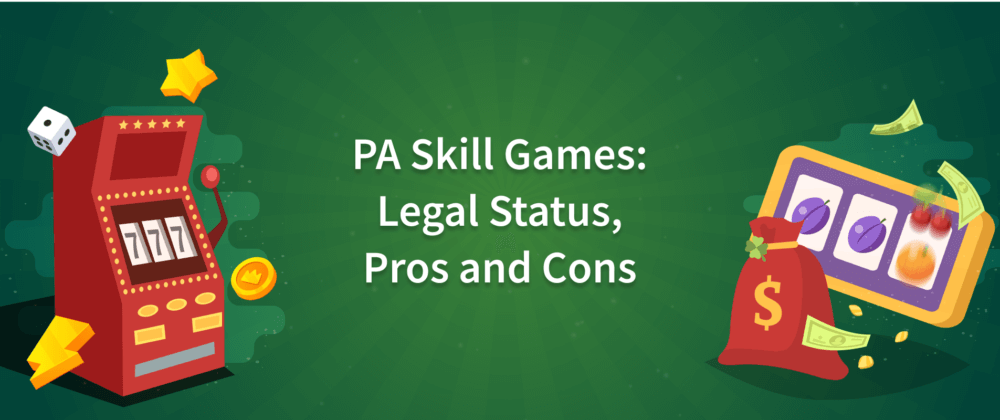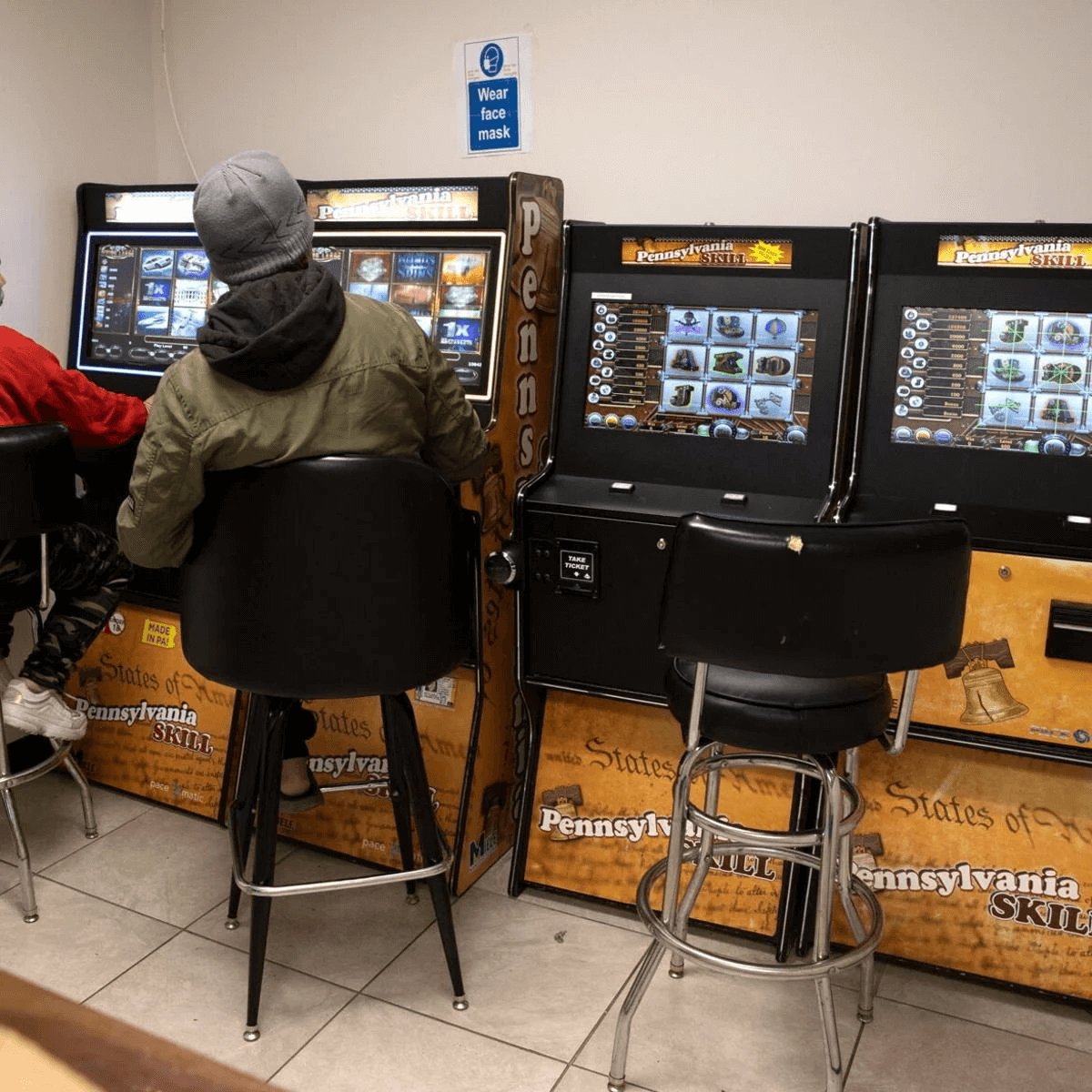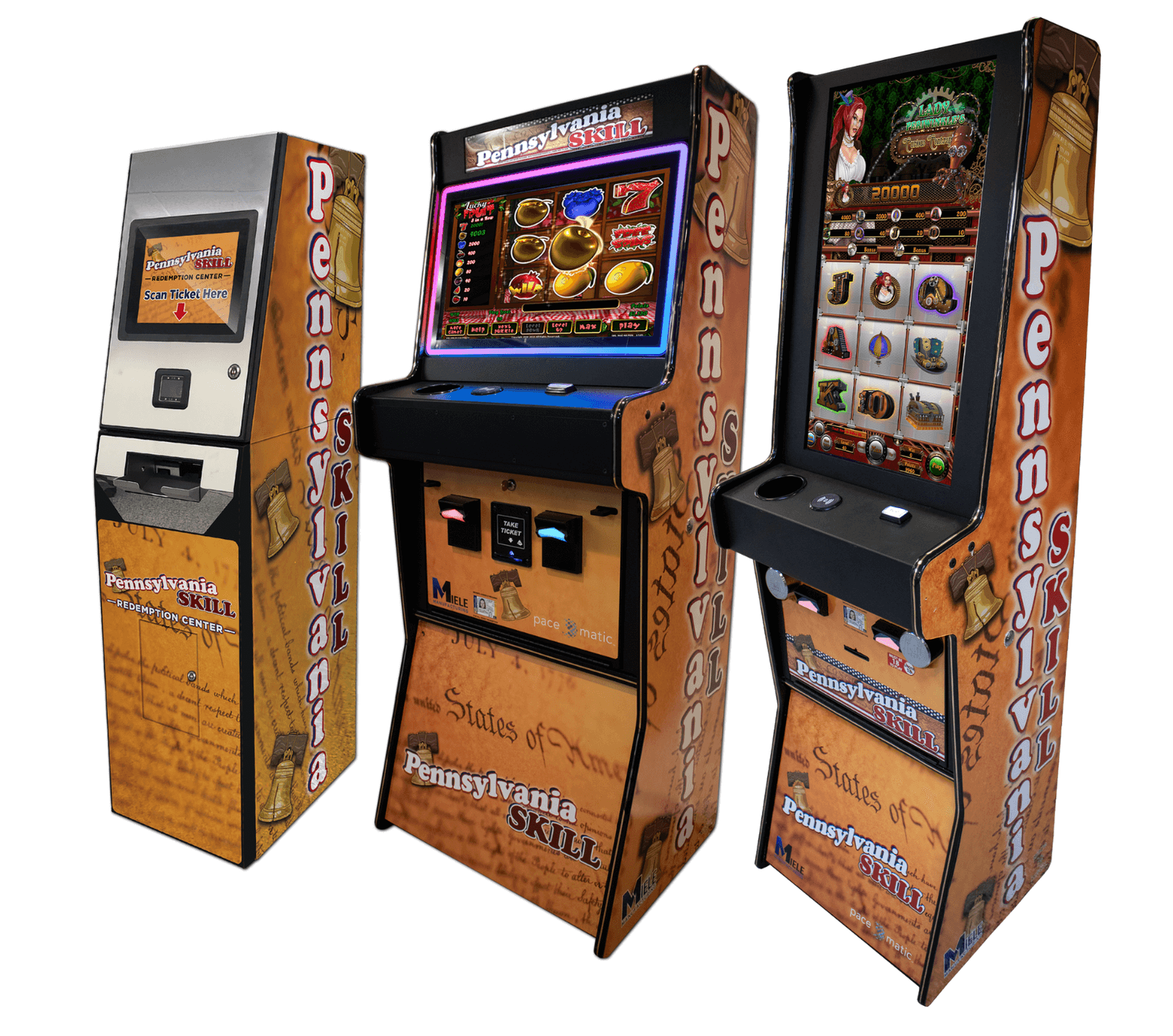Join our subscription list to get access to new bonus offers, online casino reviews, and industry news all in one newsletter!
PA Skill Games: Insights, Legality, and More – 2026

 2.7K
2.7K

Before the legalization of PA casinos online, another gambling bug swept the state: skill games. Skill games are a type of gaming cabinet that closely resembles a slot machine in both looks and function. The key difference between a skill game and a slot is that slots are games of pure chance, while skill games require a level of skill as well as luck.
Skill games currently exist in a massive gray area in PA law, as the courts have consistently ruled in favor of skill games, though there is currently no official law determining their legality. This blog will explore how that gray area affects local businesses, large casinos, state tax revenue, and much more. Let’s dive in.
Skill Games are Everywhere: What are Skill Games?
So, what are skill games? The easiest way to describe them is like other slot machines in PA, with the skill-based element of the machine dictating that the player must select the winning paylines after each spin to collect any payouts; failure to do so will result in lost winnings. Some of the newer terminals even make the winning paylines glow, making the skill element even less pronounced.
📌 PA Skills games don’t have the same legislative restrictions as their chance-based cousins, even though the amount of skill required to play the games is relatively low. This key differentiator has led to a flood of skill games around the state, with terminals appearing ever more frequently in the last decade across frat houses, bars, malls, and seemingly everywhere else.
As they are available at almost every turn, skill games remain a popular choice of gambling in the Keystone state, though you won’t be receiving any of the big deposit matches by the various PA online casino bonuses, as well as any other perks that come with legal gambling operators.
Pennsylvania Skill Games are in a Legal Limbo

Image: Christopher Dolan, The Times Tribune
The battle for the legality of Skill Games started around 2017, when Pennsylvania the state expanded gambling within the state, officially allowing internet gambling including online casinos and iGaming at licensed sites. Still, there was no concrete legal definition put in place and the gray area of skill games began.
In 2019, state police stormed into Champions Sports Bar and removed a number of Pennsylvania Skill gaming terminals. That same year, the first official court ruling decided that the terminals sold by Pennsylvania Skill were not gambling devices as they required an element of skill and were not purely chance-based. The seized terminals were to be returned to the owners. The 2019 ruling established common law for the operation of skill game terminals, although no legislation was in place.
Court battles persisted throughout 2020 and 2021, with the owner of Pennsylvania Skill enjoying favorable rulings in each of them. At this time, Republican Senator Gene Yaw began making plans to establish legislation for the terminals, which would later become SB 706.
The most recent, and perhaps most concrete court ruling confirming the machines sold by Pennsylvania Skill were truly skill games, came in November 2023. In a unanimous 7-0 verdict, the court confirmed yet another earlier judgment by a Dauphin County judge from earlier in 2023.
Do the Critics Have a Point?
There are plenty of voices shouting and screaming against the legality of skill game terminals, with the biggest arguments against the devices being that they are unregulated, untaxed, and generally only serve as a detriment to society without bringing in anything useful, such as tax revenue, to the public.
📌 While the skill-based nature of the machines doesn’t require much actual skill to grasp, it is still present. This is unlike slots, which use random number generators and have a pretty consistent payout and absolutely zero skill requirements. The fact is, those who simply don’t know how to play skill games could walk away with absolutely nothing, every time.
One of the largest critics of skill games is the wider PA casino industry, who fear that the existence of these skill machines is causing the gaming giants to lose out. Parx Casino even went as far as to sue Pennsylvania Skill for financial damages due to loss of potential revenue. Parx has also employed lobbying tactics to encourage a ban on the games.
The strongest opponent of Pennsylvania Skill is likely the Pennsylvania Lottery and its benefactors, though. The state lottery suggested that in just five years from 2017 to 2022 they had lost approximately $650 million in lottery scratcher revenue to skill game terminals, given that scratchers are commonly sold in many of the places skill games can be found.
What Do the Proponents Have to Say?
The sole vendor of the gaming cabinets, Pennsylvania Skill, suggests that the industry is actually rather good for the state, indirectly supporting over 10,000 jobs and creating over $80 million in annual tax revenue as well as being a major benefit to the small businesses who use their products.

Michael Barley, a spokesman for Pace-O-Matic, the parent company behind Pennsylvania Skill, suggested the company was up for paying additional taxes. “It’s not normal but as a company we’ve raised our hands and said we’d like to pay an additional tax,” said Barley; though he did go on to caveat that a large portion of the company’s revenue was circulated in the state’s own economy.
Speaking of those small businesses, many owners have preached about how skill games have been a large benefit to their business, and in some cases, a lifeline. One such reported case was a bar in Lebanon, which hung on through the financial fallout of the pandemic thanks to the terminals.
It’s also worth pointing out that the state lottery has pretty bad RTPs, often below 70% for scratchers and around 60% for the lottery itself. The average PA skill machine offers significantly higher returns, typically over 90%. As PA is technically a commonwealth state, this does bode well for the fact skill games may be better for the people in some regards.
Luck Versus Law: Do Skill Games Have a Future in PA?
Until the courts pass a verdict against the legality of skill games, or lawmakers finally agree on either regulation or a ban, the terminals will continue to flourish in small businesses.
As usual, lawmakers don’t have a unanimous idea for the future of skill games. Republican Senator Gene Yaw, whose district covers Pennsylvania Skill, the primary vendor of skill games in the state, wants to introduce regulation. His bill, namely SB 706, for which he has eight co-sponsors, looks to introduce a 16% tax on the terminals alongside a host of application and renewal fees. In the other lane is Democratic Senator Amanda Cappelletti looking to propose an outright ban on the cabinets.
Kevin O’Toole, Director of the Pennsylvania Gaming Control Board (PGCB), said in a 2019 public hearing that it would be “inherently unfair to require the Board to cover the costs with funds from the other casino and VGT regulated entities.” Regulated casinos and VGT operators currently pay an extremely high tax rate on their activities, which goes toward funding programs that deal directly with the fallout of gambling within the state, such as gambling addiction programs.
O’Toole later suggested in a 2023 hearing that the state could expect to receive about $250 million a year in taxes should the games be regulated. It can be assumed that this would offset the potential reduction in taxation from the state lottery.
The Board Director simply wants legislation to be put in place. “To resolve this uncertainty, a legislative determination one way or the other will need to be made,” said O’Toole. He did, however, seem confident in the Gaming Control Board’s ability to regulate the industry with the correct funding from taxation.
As Skill Games Stand Today
Whether you’re a fan of these terminals or not, the vast majority of people would probably agree they currently exist as a legal loophole rather than a true test of skill. Plenty of small businesses have come to rely on them, though, and patrons are seemingly enjoying the ability to play almost anywhere.
A small tax probably wouldn’t ruin the viability of the businesses that rely on the profits of a skilled machine, but it would end constant battling with the courts and provide at least some revenue to public programs that need the funding.
Regardless of the ethical stance of either the proponents or critics, as it stands today, Pennsylvania skill machines are entirely legal thanks to various decisions made by PA courts, and that probably won’t change until official legislation is put into place.










